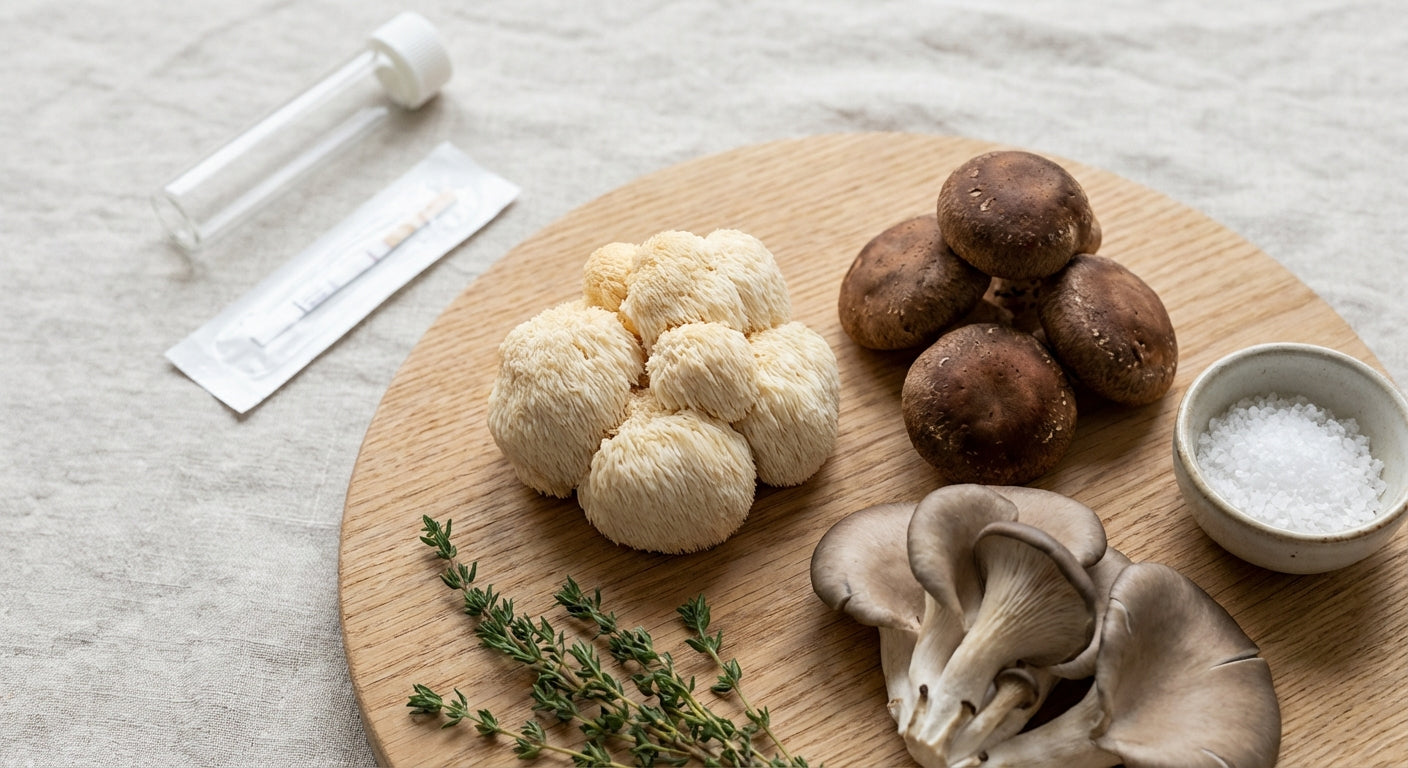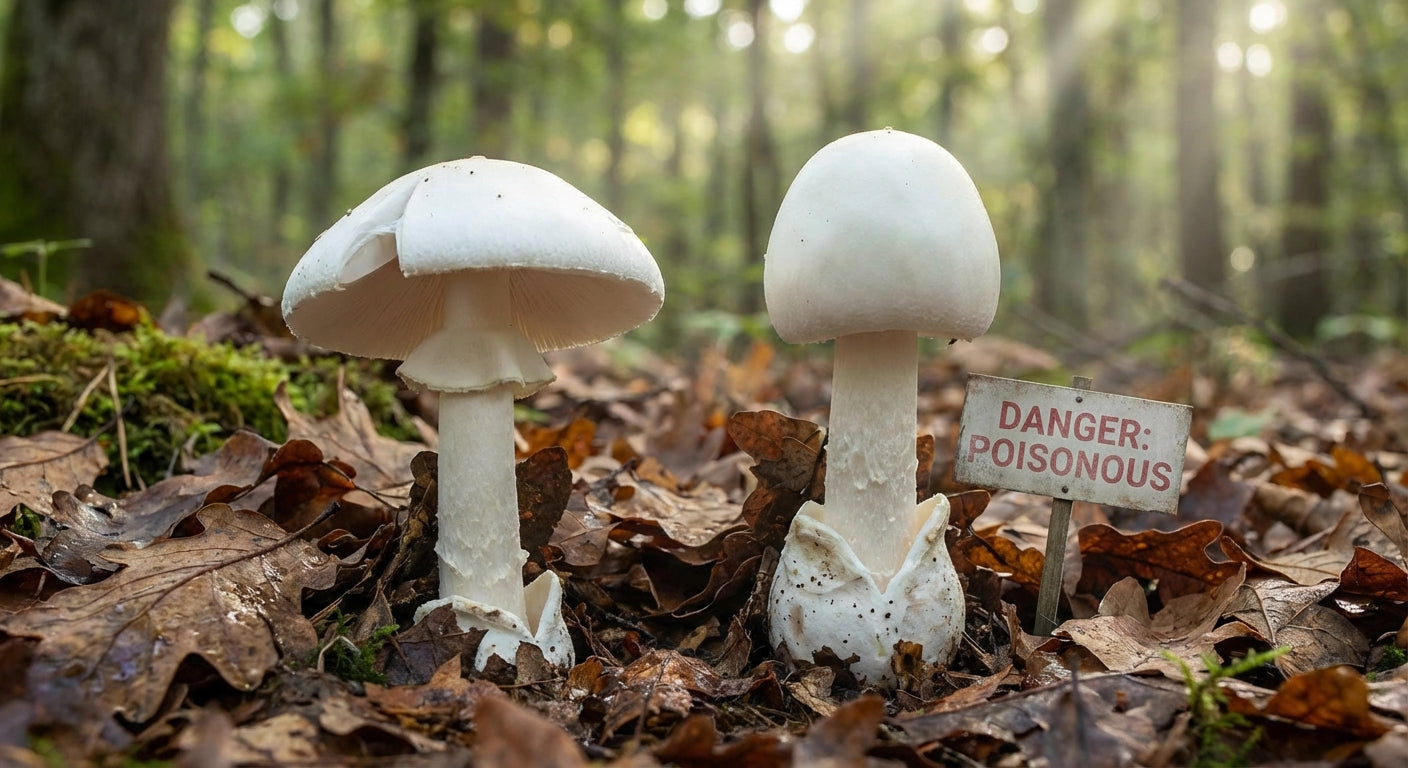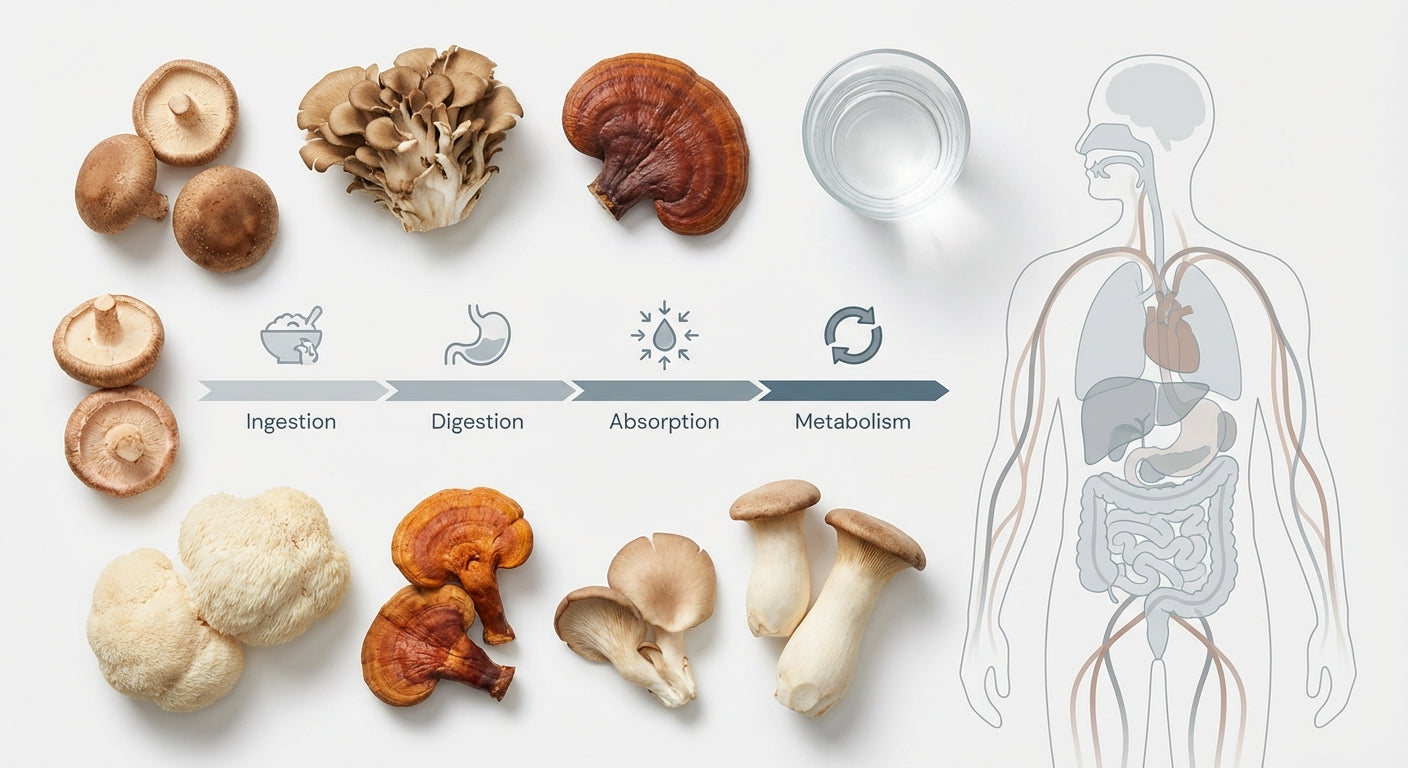Introduction to Reishi Mushroom Coffee
Reishi mushroom coffee represents a fascinating intersection of ancient medicinal wisdom and modern coffee culture. This innovative beverage combines the rich, robust flavors of coffee with the powerful health benefits of Reishi mushroom (Ganoderma lucidum), a fungus that has been revered in traditional Eastern medicine for thousands of years. As wellness-conscious consumers increasingly seek functional beverages that offer more than just caffeine, Reishi mushroom coffee has emerged as a compelling alternative to conventional coffee.
This unique fusion creates a beverage that not only provides the familiar energy boost and satisfying taste of coffee but also delivers the adaptogenic properties of Reishi mushroom. The result is a more balanced coffee experience that supports overall wellbeing while minimizing some of the less desirable effects of caffeine consumption, such as jitters and crashes. Whether you're a coffee enthusiast looking to expand your palate, a health-conscious individual seeking functional beverages, or simply curious about mushroom coffee trends, understanding Reishi mushroom coffee opens the door to a fascinating world where flavor meets function.

What is Reishi Mushroom?
Before diving into the specifics of Reishi mushroom coffee, it's important to understand the remarkable fungus at its core.
History and Traditional Use
Reishi mushroom, scientifically known as Ganoderma lucidum, has one of the longest documented histories of use among medicinal fungi:
- In ancient China, it was called "Lingzhi" or the "mushroom of immortality," and was reserved for royalty
- Records of its medicinal use date back over 2,000 years in Chinese pharmacopeias
- Traditional Taoist monks incorporated it into spiritual practices for its purported ability to promote calmness and spiritual centeredness
- Japanese culture has similarly valued this fungus, calling it "Reishi" (the name most commonly used in the West today)
- Throughout East Asia, it has been traditionally used to support longevity, vitality, and overall wellness
This rich historical background provides context for why Reishi continues to be valued in modern wellness practices, including its incorporation into coffee products.
Appearance and Cultivation
Reishi mushroom has a distinctive appearance that makes it easily recognizable:
- Kidney-shaped cap with a glossy, varnished-looking surface
- Colors ranging from reddish-orange to deep mahogany
- Woody texture that becomes increasingly hard as the mushroom matures
- White spores that appear on the underside of mature specimens
- Grows primarily on hardwood trees, particularly maples and oaks
While once rare due to limited natural occurrence, Reishi is now widely cultivated on hardwood logs or sawdust substrates, making it more accessible for commercial use in products like Reishi mushroom coffee.
Bioactive Compounds
Reishi contains numerous bioactive compounds that contribute to its health-supporting properties:
- Triterpenes, particularly ganoderic acids, which contribute to its bitter taste and many medicinal effects
- Beta-glucans and other polysaccharides that support immune function
- Sterols that may help regulate cholesterol levels
- Proteins and peptides with various biological activities
- Trace minerals and vitamins that support overall health
These compounds work synergistically to produce Reishi's wide range of health benefits, many of which are preserved in well-made Reishi mushroom coffee products.
Health Benefits of Reishi Mushroom Coffee
Reishi mushroom coffee offers a unique combination of benefits from both coffee and Reishi mushroom, creating a functional beverage with advantages over traditional coffee.
Adaptogenic Properties
As an adaptogen, Reishi helps the body respond more effectively to stress:
- Supports the body's natural ability to adapt to physical, mental, and environmental stressors
- May help regulate cortisol levels, potentially reducing the stress response
- Promotes overall resilience and balance in bodily systems
- Complements coffee's stimulating effects with a calming influence
This adaptogenic quality can be particularly beneficial when combined with coffee, potentially providing energy without the typical caffeine-induced stress response.
Immune System Support
One of Reishi's most well-documented benefits is its positive effect on immune function:
- Contains beta-glucans that help activate and modulate immune cells
- Supports both innate and adaptive immune responses
- May help regulate inflammation processes
- Provides antioxidant support that protects cells from oxidative stress
Regular consumption of Reishi mushroom coffee may contribute to overall immune resilience, particularly during seasonal transitions or periods of increased immune challenges.
Reduced Caffeine Side Effects
Many users report that Reishi mushroom coffee provides a more balanced energy experience:
- The adaptogenic properties of Reishi may help modulate coffee's stimulant effects
- May reduce common caffeine side effects like jitters, anxiety, and heart palpitations
- Often provides a more sustained energy curve without dramatic peaks and crashes
- Can support better sleep quality for those sensitive to caffeine's effects on sleep
This more balanced energy profile makes Reishi mushroom coffee an attractive option for those who enjoy coffee but are sensitive to caffeine's negative effects.
Heart and Circulatory Support
Research suggests Reishi may offer cardiovascular benefits:
- Contains compounds that may help regulate blood pressure
- May contribute to healthy cholesterol levels
- Provides antioxidant protection for blood vessels
- May support healthy blood sugar levels, which impacts cardiovascular health
These properties complement coffee's own cardiovascular benefits, which include improved circulation and potential reduction in heart disease risk when consumed in moderation.
Liver Support and Detoxification
The liver-protective effects of Reishi can be particularly valuable in a coffee beverage:
- Contains triterpenes that may help protect liver cells
- Supports the liver's natural detoxification processes
- May help reduce inflammation in the liver
- Could potentially offset some of coffee's workload on the liver
This liver support can be especially beneficial for regular coffee drinkers, as the liver is responsible for metabolizing caffeine.
Nutritional Profile of Reishi Mushroom Coffee
Reishi mushroom coffee offers a unique nutritional profile that combines elements from both coffee and Reishi mushroom.
Caffeine Content
The caffeine content in Reishi mushroom coffee varies by product but typically offers several advantages:
- Usually contains less caffeine than regular coffee (approximately 30-50% less depending on the brand)
- Provides sufficient caffeine for mental alertness and cognitive benefits
- Offers a more gradual release of energy due to the interaction with Reishi compounds
- May produce fewer side effects due to the reduced caffeine load
This modified caffeine profile makes Reishi mushroom coffee suitable for those looking to reduce caffeine consumption without eliminating it entirely.
Antioxidants
Both coffee and Reishi are rich sources of antioxidants, making their combination particularly beneficial:
- Coffee provides chlorogenic acid, melanoidins, and other antioxidant compounds
- Reishi contributes triterpenes, polyphenols, and other unique antioxidants
- Together, they offer a diverse antioxidant profile that targets multiple biological pathways
- This antioxidant synergy may provide enhanced protection against oxidative stress
Regular consumption of these antioxidants may contribute to overall cellular health and protection against age-related degeneration.
Minerals and Trace Elements
Reishi mushroom adds several important minerals to the nutritional profile:
- Potassium, which supports proper nerve and muscle function
- Selenium, an important cofactor for antioxidant enzymes
- Zinc, which plays a vital role in immune function
- Copper and iron, which contribute to healthy blood cell production
These minerals complement coffee's own mineral content, creating a more nutritionally complete beverage.
Caloric and Macronutrient Profile
Reishi mushroom coffee typically has a minimal impact on daily caloric intake:
- Plain Reishi mushroom coffee contains virtually no calories (similar to regular black coffee)
- Minimal protein content (less than 1 gram per serving)
- Negligible fat content unless added during preparation
- No sugar unless sweeteners are added
This makes Reishi mushroom coffee suitable for various dietary approaches, including intermittent fasting, low-carb, and calorie-restricted diets.
How Reishi Mushroom Coffee is Made
The production of Reishi mushroom coffee involves several methods, each yielding slightly different flavor profiles and benefits.
Dual-Extraction Process
High-quality Reishi mushroom coffee typically utilizes a dual-extraction process for the Reishi component:
- Hot water extraction: Releases water-soluble compounds, particularly polysaccharides and beta-glucans
- Alcohol extraction: Captures alcohol-soluble triterpenes and other compounds
- Combination: These extracts are combined and then typically spray-dried into a powder
This comprehensive extraction method ensures that the full spectrum of Reishi's beneficial compounds is preserved in the final coffee product.
Blending Methods
Several approaches exist for combining Reishi and coffee:
- Pre-ground blends: Dried, ground Reishi is mixed directly with ground coffee beans
- Extract blends: Reishi extract powder is combined with instant or ground coffee
- Infused whole beans: Some specialty producers infuse whole coffee beans with Reishi extract during the roasting process
- Ready-to-drink preparations: Bottled or canned beverages that combine brewed coffee with Reishi extract
Each method offers different convenience levels and flavor experiences, with extract-based products typically providing more consistent benefits.
Coffee Bean Selection
The coffee beans used in Reishi mushroom coffee can significantly impact the final product:
- Single-origin vs. blends: Many premium Reishi coffee products specify the origin of their coffee beans
- Roast levels: Medium roasts are most common, balancing coffee flavor with Reishi's earthy notes
- Arabica vs. Robusta: Most quality products use 100% Arabica beans for their superior flavor profile
- Organic certification: Many brands emphasize organic beans to align with the health-focused nature of the product
The interaction between specific coffee varieties and Reishi creates unique flavor profiles that appeal to different palates.
Quality Indicators
Several factors indicate the quality of Reishi mushroom coffee:
- Fruiting body vs. mycelium: Products using extracts from the actual mushroom fruiting body (rather than mycelium grown on grain) typically offer superior benefits
- Extraction ratios: Higher ratios indicate more mushroom material was used to create the extract
- Beta-glucan content: Some premium products specify the percentage of beta-glucans
- Organic certification: Ensures both the coffee and mushroom components are grown without synthetic pesticides
- Third-party testing: Verifies potency and confirms the absence of contaminants
Understanding these quality indicators can help consumers select products that deliver the full benefits of both coffee and Reishi.

Taste Profile and Brewing Recommendations
The flavor of Reishi mushroom coffee is distinctive and may require some adjustment for those accustomed to conventional coffee.
Flavor Characteristics
Reishi imparts several notable characteristics to coffee:
- Adds an earthy, somewhat woody undertone to coffee's natural flavor
- Contributes a slight bitterness that can actually complement coffee's natural bitter notes
- Introduces subtle umami elements that add complexity
- Often reduces the perceived acidity of coffee
- Creates a fuller mouthfeel than regular coffee
These flavor characteristics vary in intensity depending on the ratio of Reishi to coffee and the specific extraction methods used.
Brewing Methods
Different brewing methods can enhance or subdue Reishi's distinctive flavor:
- French press: Highlights the full-bodied aspects of Reishi mushroom coffee and allows its earthy flavors to shine
- Pour-over: Can emphasize the cleaner notes while minimizing some of Reishi's stronger earthy qualities
- Espresso: Concentrates flavors but may intensify Reishi's bitterness
- Cold brew: Reduces acidity and bitterness, often resulting in a smoother Reishi coffee experience
Experimenting with different brewing methods can help users find their preferred balance of coffee and Reishi flavors.
Flavor Enhancement Suggestions
For those new to Reishi mushroom coffee, these additions can help create a more familiar and enjoyable experience:
- A small amount of cinnamon complements both coffee and Reishi flavors while adding sweetness perception
- Vanilla extract can soften Reishi's earthy notes
- A pinch of salt can reduce bitterness without adding calories
- Plant-based milks, particularly oat or coconut, pair well with Reishi coffee's flavor profile
- For sweetness, maple syrup or honey harmonizes better with Reishi's flavor than refined sugar
These additions can help ease the transition to Reishi mushroom coffee while allowing its unique benefits to be enjoyed.
Optimal Brewing Temperature
Temperature considerations for Reishi mushroom coffee:
- Slightly lower brewing temperatures (195-200°F rather than 205°F) can reduce excessive bitterness
- Allow boiling water to cool for 30-45 seconds before brewing
- Cold brew methods can produce a particularly smooth result with minimal bitterness
- Avoid reheating Reishi mushroom coffee, as this can intensify bitter compounds
Attention to brewing temperature can significantly improve the flavor experience of Reishi mushroom coffee.
Reishi Mushroom Coffee vs. Regular Coffee
Understanding the key differences between Reishi mushroom coffee and conventional coffee can help consumers make informed choices.
Caffeine Content and Energy Profile
How the energy experience differs:
- Reishi mushroom coffee typically contains 30-50% less caffeine than regular coffee
- The energy curve tends to be more gradual, with fewer dramatic peaks and crashes
- Users often report more sustained mental clarity without jitters
- The adaptogenic properties of Reishi may buffer some of caffeine's stress-triggering effects
- The comedown is typically gentler with less likelihood of afternoon energy crashes
This modified energy profile makes Reishi coffee particularly suitable for those sensitive to caffeine's effects.
Health Benefits Comparison
Comparing the health implications:
- Regular coffee is associated with numerous health benefits including reduced risk of certain diseases, improved cognitive function, and enhanced physical performance
- Reishi mushroom coffee retains many of coffee's benefits while adding Reishi's adaptogenic, immune-supporting, and stress-modulating properties
- The reduced caffeine content may be beneficial for those with caffeine sensitivity, anxiety disorders, or sleep issues
- Reishi's liver-supportive properties may help offset some of coffee's demands on detoxification pathways
- Both beverages contain antioxidants, though from different compound classes
For many users, Reishi mushroom coffee represents a "best of both worlds" approach that retains coffee's pleasures with additional health benefits.
Digestive System Effects
Impact on digestive comfort:
- Regular coffee can increase stomach acid production and aggravate acid reflux in sensitive individuals
- The reduced acidity of many Reishi coffee products may be gentler on the digestive system
- Reishi's anti-inflammatory properties might help soothe digestive tract irritation
- Some users report less stomach discomfort with Reishi coffee compared to regular coffee
- The bitter compounds in both coffee and Reishi support healthy digestive function
Those with sensitive digestive systems often find Reishi mushroom coffee more tolerable than conventional coffee.
Sleep Quality Impact
Effects on sleep patterns:
- The reduced caffeine content of Reishi coffee may result in less sleep disruption
- Reishi's adaptogenic properties may help regulate sleep-wake cycles
- Many users report they can enjoy Reishi coffee later in the day without affecting sleep
- Some Reishi compounds may actively support healthy sleep quality
- The gentler "comedown" from Reishi coffee can prevent the fatigue that sometimes leads to excessive afternoon caffeine consumption
For those concerned about coffee's impact on sleep, Reishi mushroom coffee can offer a more sleep-friendly alternative.
How to Incorporate Reishi Mushroom Coffee Into Your Routine
Maximizing the benefits of Reishi mushroom coffee involves thoughtful integration into your daily routine.
Optimal Timing
Strategic timing can enhance the benefits:
- Morning consumption provides energy without excessive stimulation for the day ahead
- Mid-morning (around 9:30-10:30 AM) aligns with natural cortisol dips when caffeine can be most effective
- Early afternoon can provide a gentle energy boost without disrupting sleep
- Avoid consumption within 6 hours of bedtime, even with reduced caffeine content
- Consider your personal caffeine sensitivity when determining timing
Experimenting with timing can help identify when Reishi coffee provides the most benefit for your unique physiology.
Dosage Considerations
Finding the right amount for your needs:
- Begin with a single cup (8-12 oz) to assess your body's response
- Those sensitive to either coffee or mushroom supplements should start with half a serving
- Most people find 1-2 cups daily provides optimal benefits
- The Reishi content in commercial products varies widely, so check manufacturer recommendations
- Some users cycle between Reishi coffee and regular coffee throughout the week
As with any functional food or supplement, starting conservatively and gradually increasing allows you to find your optimal dose.
Complementary Lifestyle Practices
Habits that enhance Reishi coffee's benefits:
- Adequate hydration supports both caffeine metabolism and Reishi's detoxification benefits
- Regular exercise complements the energy-balancing effects of Reishi coffee
- Stress management practices align with Reishi's adaptogenic properties
- Consistent sleep schedules work synergistically with Reishi's regulatory effects
- A whole-foods diet rich in plants maximizes the anti-inflammatory benefits
These complementary practices create a foundation that allows Reishi mushroom coffee to provide maximum benefit.
Potential Synergies With Other Mushrooms
Some products combine multiple functional mushrooms with coffee:
- Lion's Mane: Adds cognitive and nerve-supporting benefits
- Chaga: Contributes additional antioxidant protection
- Cordyceps: Enhances energy and exercise performance
- Turkey Tail: Provides additional immune and gut support
- Maitake: Offers blood sugar balancing properties
These mushroom combinations can create targeted formulations for specific health goals while maintaining the familiar coffee experience.
Buying Guide: Choosing Quality Reishi Mushroom Coffee
With numerous products on the market, selecting high-quality Reishi mushroom coffee requires attention to several key factors.
Source Materials
The quality of both the coffee and Reishi components matters:
- Coffee origin and quality: Look for single-origin or high-quality blends from reputable growing regions
- Organic certification: Ensures both coffee and mushrooms are grown without synthetic pesticides
- Reishi source: Products using the fruiting body rather than mycelium generally contain higher levels of beneficial compounds
- Wild vs. cultivated: While wild Reishi is sometimes marketed as superior, well-grown cultivated Reishi can be equally potent
- Species specification: Ganoderma lucidum (red Reishi) is the most studied species with the strongest research support
Quality source materials form the foundation of an effective Reishi mushroom coffee product.
Extraction Methods
How the Reishi is processed significantly impacts potency:
- Dual extraction: Look for products specifying both water and alcohol extraction for full-spectrum benefits
- Extract ratios: Higher ratios (e.g., 8:1 or 10:1) indicate more mushroom material was used to create the extract
- Standardization: Some premium products standardize for specific active compounds like beta-glucans or triterpenes
- Whole mushroom powder vs. extract: Extracts typically provide more consistent and potent benefits than simple powdered mushroom
- Processing transparency: Companies should willingly share details about their extraction methods
Understanding extraction terminology helps identify products that deliver the full potential of Reishi.
Third-Party Testing
Verification of quality and safety:
- Certificate of Analysis (COA): Confirms the product's composition and purity
- Heavy metal testing: Particularly important as mushrooms can bioaccumulate metals from their growing medium
- Microbial testing: Ensures the product is free from harmful bacteria, molds, and yeasts
- Beta-glucan content: Some products test specifically for these important immune-supporting compounds
- Pesticide screening: Verifies the absence of agricultural chemicals, even in products not certified organic
Reputable companies make testing results available upon request if not published directly on their websites.
Packaging and Freshness
Preserving potency through proper packaging:
- Airtight packaging: Protects against moisture and oxidation
- Light protection: Opaque or amber packaging prevents degradation from light exposure
- Individual sachets: Single-serve packets maintain freshness of unused portions
- Production dates: Freshly produced coffee provides maximum flavor and benefit
- Shelf life information: Understanding stability helps ensure you're consuming an effective product
Proper packaging preserves both the coffee's flavor and the Reishi's beneficial compounds.
Potential Side Effects and Precautions
While generally well-tolerated, Reishi mushroom coffee may not be suitable for everyone.
Common Side Effects
Possible reactions to be aware of:
- Digestive discomfort, particularly when first introducing Reishi (usually mild and temporary)
- Dry mouth or throat in some sensitive individuals
- Dizziness or lightheadedness (rare and typically associated with caffeine sensitivity)
- Potential allergic reactions in those sensitive to mushrooms
- Initial changes in energy levels as the body adjusts to the adaptogenic effects
Most side effects are mild and resolve as the body adjusts to regular consumption.
Drug Interactions
Important considerations for those on medications:
- Blood thinners: Reishi may enhance the effect of anticoagulant and antiplatelet medications
- Blood pressure medications: Potential additive effects with antihypertensive drugs
- Immunosuppressants: Reishi's immune-modulating effects could theoretically interfere with these medications
- Diabetes medications: May enhance blood sugar-lowering effects
- Caffeine interactions: Even reduced caffeine can interact with certain medications like stimulants or theophylline
Always consult a healthcare provider before combining Reishi mushroom coffee with prescription medications.
Who Should Avoid Reishi Mushroom Coffee
Specific populations that should exercise caution:
- Pregnant or breastfeeding women (due to insufficient safety data)
- Individuals with known mushroom allergies
- Those with severe autoimmune conditions (without medical supervision)
- People with bleeding disorders
- Individuals with very low blood pressure
- Those with severe caffeine sensitivity (though less problematic than regular coffee)
When in doubt, consulting with a healthcare provider can help determine if Reishi mushroom coffee is appropriate for your specific situation.
Safe Consumption Guidelines
Best practices for safe enjoyment:
- Start with small amounts to assess tolerance
- Introduce gradually, especially if new to medicinal mushrooms
- Stay well-hydrated when consuming caffeine-containing beverages
- Consider cycling use (5 days on, 2 days off) for optimal long-term benefits
- Discontinue use if experiencing persistent adverse effects
Following these guidelines maximizes benefits while minimizing the risk of side effects.
Frequently Asked Questions About Reishi Mushroom Coffee
Will Reishi mushroom coffee keep me awake like regular coffee?
Reishi mushroom coffee does contain caffeine, though typically less than regular coffee. Most users report a gentler energy boost with fewer jitters and less impact on sleep. The adaptogenic properties of Reishi may actually help regulate sleep-wake cycles in some individuals. However, as with any caffeinated beverage, it's best to avoid consumption in the late afternoon or evening if you're sensitive to caffeine's effects on sleep.
Does Reishi mushroom coffee taste like mushrooms?
Reishi mushroom coffee has a distinctive flavor profile that includes earthy, woody notes from the Reishi alongside coffee's familiar taste. The mushroom flavor is generally subtle in well-formulated products, particularly those using extracts rather than whole mushroom powder. Many users describe it as a deeper, more complex coffee experience rather than an overtly mushroom-like taste. Those sensitive to new flavors may prefer starting with products that have a higher coffee-to-Reishi ratio.
How does Reishi mushroom coffee compare to other mushroom coffees?
Different medicinal mushrooms impart unique benefits and flavor profiles to coffee:
- Lion's Mane mushroom coffee emphasizes cognitive benefits and has a milder flavor
- Chaga mushroom coffee offers stronger antioxidant properties with a slightly vanilla-like note
- Cordyceps mushroom coffee focuses on energy and physical performance enhancement
- Reishi stands out for its stress-modulating and sleep-supporting properties
Many products combine multiple mushroom species to provide comprehensive benefits while balancing flavor profiles.
Can I make Reishi mushroom coffee at home?
Yes, you can prepare Reishi mushroom coffee at home in several ways:
- Add Reishi extract powder or tincture to your regular brewed coffee
- Brew ground coffee with Reishi tea (prepared separately) instead of water
- Simmer ground Reishi mushroom with ground coffee in a pot for 15-20 minutes (similar to Turkish coffee preparation)
- Use pre-formulated Reishi mushroom coffee blends
Homemade preparations allow for customization of both the Reishi concentration and coffee variety to suit personal preferences.
How long does it take to feel the benefits of Reishi mushroom coffee?
The timeline for experiencing benefits varies:
- The coffee's energizing effects occur within 20-30 minutes of consumption
- Reishi's stress-modulating effects may be noticed within days to weeks of regular use
- Immune-supporting benefits typically develop over weeks of consistent consumption
- Some adaptogenic effects may take 1-3 months of regular use to fully manifest
As with many natural health supplements, consistency is key to experiencing the full range of benefits from Reishi mushroom coffee.
Conclusion
Reishi mushroom coffee represents a fascinating evolution in functional beverages, bridging ancient herbal wisdom with contemporary coffee culture. By combining the familiar pleasure and energy of coffee with the adaptogenic and health-supporting properties of Reishi mushroom, this innovative beverage offers a more balanced alternative to conventional coffee. The reduced caffeine content paired with stress-modulating compounds creates an experience that many users find provides sustainable energy without the common downsides of coffee consumption.
As interest in functional foods and adaptogens continues to grow, Reishi mushroom coffee stands out as a practical way to incorporate beneficial mushrooms into daily routines. The familiar ritual of coffee consumption makes it an accessible entry point for those new to medicinal mushrooms, while the enhanced health profile appeals to wellness enthusiasts seeking to optimize their beverage choices. Whether you're looking to reduce caffeine jitters, support immune function, or simply explore new flavor experiences, Reishi mushroom coffee offers a compelling option worth considering.
With continued research into both coffee and medicinal mushrooms, our understanding of the synergistic benefits of this combination will likely expand. For now, those interested in exploring this functional beverage can experiment with various products and preparation methods to find their ideal balance of flavor and benefit. As with any wellness practice, approaching Reishi mushroom coffee with mindfulness, consistency, and attention to quality will yield the most satisfying results.














Share:
Reishi Mushroom Powder: Unlocking the Powerful Health Benefits of Nature’s Superfood
Reishi Mushroom Benefits for Skin Revealed